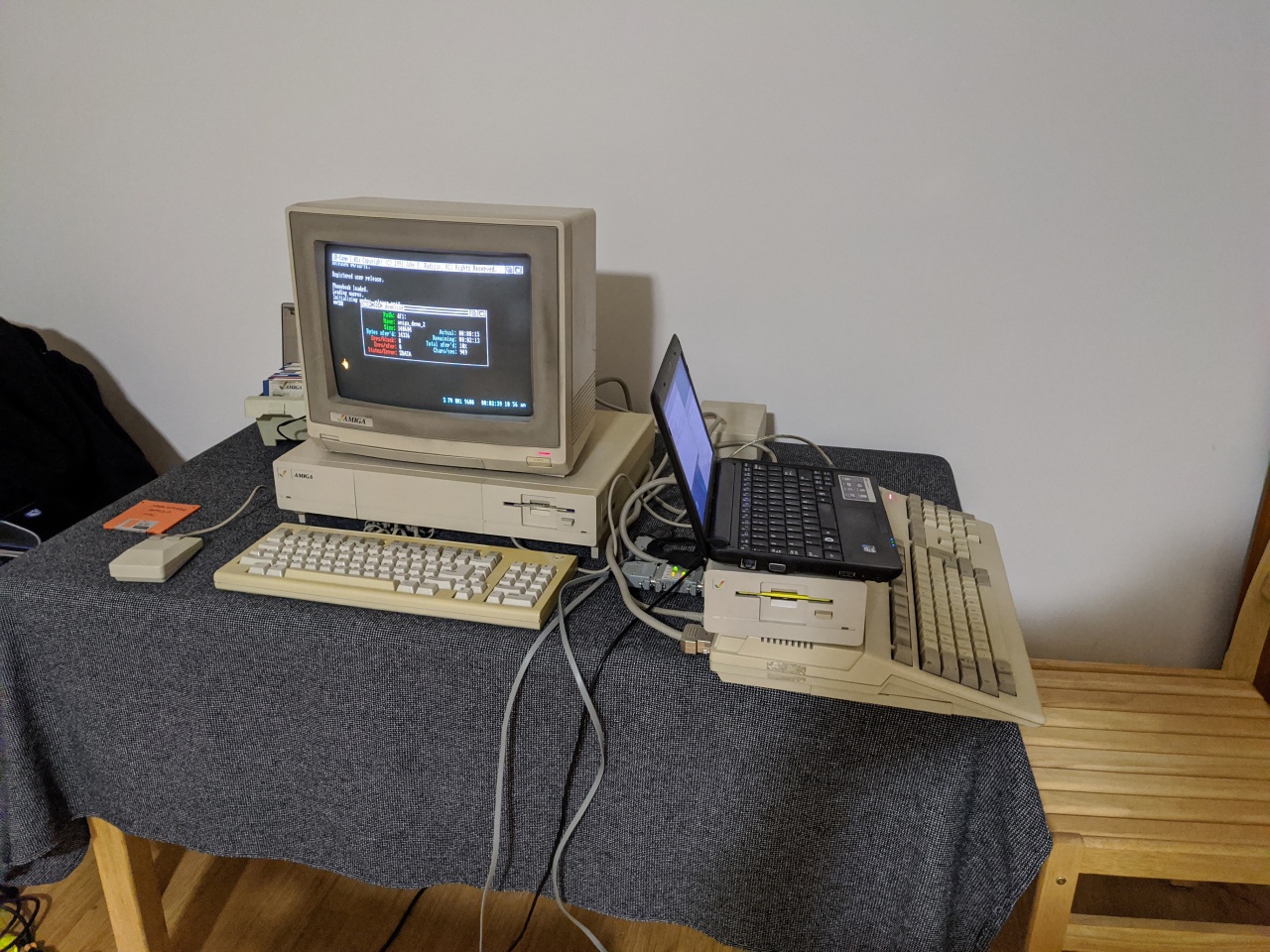Originally posted by nokipaike
View Post
Announcement
Collapse
No announcement yet.
Developers Try Again To Upstream Motorola 68000 Series Support In LLVM
Collapse
X
-
ColdFire line. And I think some microcontroller, some of which might be available even today. I know that my old Tek Scope TDS-3054 has one.Originally posted by nokipaike View PostDoes anyone know what motorola 68000 has evolved into today?
Has such a famous cpu been simply abandoned?
M68k was great and still is awesome for its time. 68000, if implemented in a FPGA would be perfectly useable in a way that Microchip uses MIPS core in ther micros etc. Unfortunately RISC-V is here, so this is getting less relevant. But still nice to have for some retro stuff, special micro or two etc.
- Likes 2
Comment
-
what I know about for post-68060 development for it is Coldfire if it's still available and the "Apollo Core" which is a soft core for FPGAs. Apollo is being used in the Vampire upgrade cards for Amigas, not sure about anywhere else.Originally posted by nokipaike View PostDoes anyone know what motorola 68000 has evolved into today?
Has such a famous cpu been simply abandoned?
- Likes 1
Comment
-
my 3D printers and my CNC are all based on arduino which has an 8- bit microcontroller, i am sure that on these machines it would have had a long lifeOriginally posted by Brane215 View Post
ColdFire line. And I think some microcontroller, some of which might be available even today. I know that my old Tek Scope TDS-3054 has one.
M68k was great and still is awesome for its time. 68000, if implemented in a FPGA would be perfectly useable in a way that Microchip uses MIPS core in ther micros etc. Unfortunately RISC-V is here, so this is getting less relevant. But still nice to have for some retro stuff, special micro or two etc.
however people don't give up, and for fun on hardware based on this cpu it implements everything .. here is someone who implemented java
Last edited by nokipaike; 29 September 2020, 02:09 AM.
Comment
-
Pretty sure Michael just read the subject and wrote the article without reading the rest of the email.Originally posted by bridgman View PostLooks like a typo in the subject line for the first email in the patch series. This appears to be for the 32-bit 68000, not the 8-bit 6800.
IIRC the last code I wrote for a 6800 played a tinny version of "Hoedown" on a 1-bit speaker output while scrolling an approximation of "Emerson Lake Palmer" across the 7-segment displays in ~1977, but I worked on 68000-family graphics drivers and accelerator hardware (initially for X/Unix then MacOS) from the early 80's through to the early 90's. That extra '0' made a big difference.
Anyways, it's worth checking the article and bumping 6800->68000.
- Likes 3
Comment
-
Loved the 6809E and it's psuedo 16bit capabilities, taught my self assembly on one in my early teens many moons ago, much nicer than the 6502 to program.Originally posted by tchiwam View Post68B09EP being my favourite 8 bit processor. I had an XC68010 once... It was a lot of fun to get it going.Last edited by Slartifartblast; 29 September 2020, 03:46 AM.
Comment
-
I program 6502 and 6809 myself, quite a bit. 6809 is a powerhouse compared the 6502, it's not even close. lol.Originally posted by Slartifartblast View Post
Loved the 6809E and it's psuedo 16bit capabilities, taught my self assembly on one in my early teens many moons ago, much nicer than the 6502 to program.
I am putting together a youtube video explaining these, but I even recently disassembled Duck Hunt for NES, which uses the 6502, and Defender the arcade game, which uses the 6809. If this interests you, the code is linked below.
I made a tool in ncurses on Linux that helped me put these together. It wraps around the ROMs, and you set the system state to each byte, and it spits out the code from the labels/comments I put "over" the binary. YouTube series coming soon!
- Likes 4
Comment
-
this would make sense, maybe also reworking of some new cpu that materially re-emerges ..Originally posted by WolfpackN64 View PostWouldn't be surprised if this has to do with the Apollo Core 68080 project (68k processor design with modern features in an FPGA, aimed mostly at the Amiga community)
but with RISC-V as someone said, this would make little sense ... unless there would be a licensed opensourcing of this architecture and somehow adapting it to RISC-V instructions, in the end RISC-V is just a set ISA right?
Comment


Comment